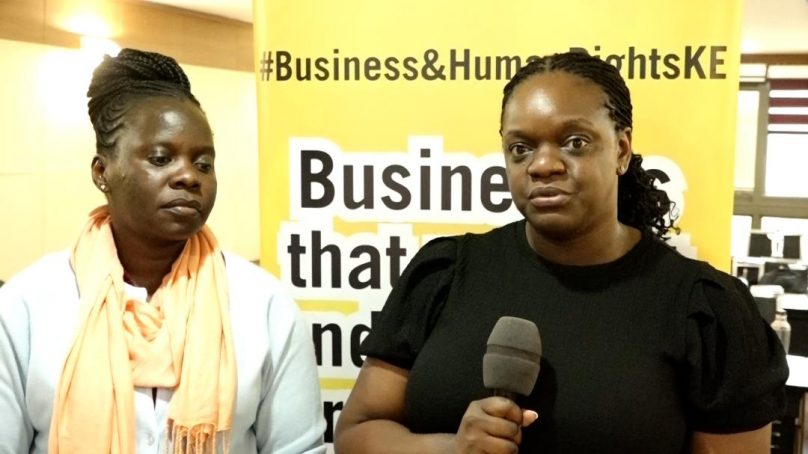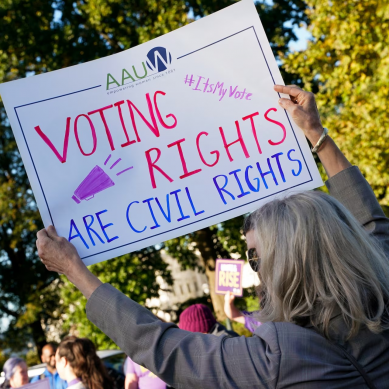
Kenya National Commission on Human Rights (KNCHR) is promoting integration of human rights considerations into business operations to strengthen investor confidence and enhance the country’s credibility and access in regional and global value chains.
Commission Senior Human Rights Business and Human Rights Officer Christina Arrumm pointed out that with growing due diligence and sustainability requirements in markets such as the European Union, responsible business conduct was no longer optional but a license to compete both in local and global markets.
Ms Arrumm underscored Kenya’s unwavering commitment to integrating human rights considerations into businesses and business operations to ensure that economic development does not come at the expense of human dignity and justice.
The commission officer noted that, though Kenya was one of the fastest growing economies in Africa, economic and social progress, should be ethical, inclusive, and equitable to guarantee a significant impact on society as a whole.
Arrumm said as the country prepared to seize African Continental Free Trade Area, opportunities and meet the requirements of export markets such as the EU, accountable business practices would not only strengthen Kenya’s domestic landscape but also enhance the country’s credibility and access in regional and global value chains.
Arrumm made the remarks during a Public-Private Sector Review of Kenya’s National Action Plan (NAP) 2020-2025, on business and human rights, held at a Nakuru hotel.
The meeting, convened by KNCHR in partnership with the Department of Justice (DOJ), brought together stakeholders from government, development partners, civil society, community members and the private sector to evaluate progress on the implementation of the NAP, identify gaps, and chart a way forward.
Arrumm added that various products from some African countries and elsewhere have been boycotted in global markets after their parent firms were implicated in sexual abuse and child labour, which highlights the growing pressure on businesses to prevent human rights violations in their supply chains and ensure ethical business practices.
She explained that Kenya was the first African country to develop a NAP on business and human rights, adding that the plan, approved by the Kenyan cabinet in April 2021 and adopted by parliament in 2022, provides a framework for the country to protect individuals and communities from business-related human rights abuses.
“For Kenya’s private sector, this document is not just about compliance, it is about competitiveness, reputation and the future of our enterprises in global markets,” noted the official.
The National Action Plan has domesticated the United Nations Guiding Principles on Business and Human Rights (UNGPs), which provides a universal framework that guides states and businesses in protecting and respecting human rights, in the context of business activities.
The Kenya NAP prioritises the development of regulatory frameworks, aimed at safeguarding, among other things, human rights abuse in energy projects. It emphasises protection of human rights in relation to: land and other natural resources; environmental protection; labour rights; and access to remedies. It specifically makes the recommendation that the Kenya Climate NAP be ‘disseminated to promote dialogue among businesses on climate change, so that they can adopt practices that reduce climate change and ensure resilience.
Arrumm stated that KNCHR was running a campaign to encourage Kenya’s private sector, not only to comply with global human rights standards, but also leverage them to build resilience, attract investment and secure new market opportunities.
She noted that at a time when African governments are developing legislation on responsible business conduct and reshaping trade relations, ensuring the inclusion of children’s rights, is critical not only to meet regulatory requirements, but also to contribute meaningfully to the sustainable development of African societies.
Arrumm urged Investors in the renewable energy sector, to embrace human rights impact assessment, as an important tool that guards against human rights abuses and mitigates against future conflicts between firms and communities.
She observed that if emerging energy renewables like geothermal, solar and wind stand on the right footing, they have the potential to have a major impact on the welfare of the communities as well as the country’s economy.
She noted that the flipside could be true, where companies exploring and exploiting the new-found wealth could end up in protracted battles or get entangled in inter-community rivalries.
Globally, the renewable energy sector has associated with various human rights violations, including land-grabbing, forced displacement, child labour, poor working conditions, restrictions on collective bargaining agreements at workplaces, increased inequality, adverse effects on food, health and water resources, loss of self-determination for indigenous peoples and the destruction of sacred sites.
Arrumm explained that such conflicts were on the rise globally as countries rushed to meet clean energy goals under the Paris Agreement on climate change.
While urging investors in the sector to follow the law and to engage in proper public participation and stakeholder consultations, the official underlined the importance of a clear focus in project planning on respecting the rights of indigenous people and ensuring their projects have been given what is known as “free, prior and informed consent” by local people.
Such projects have also led to destruction and contamination of local lands, the depletion and contamination of water resources and the destruction of the environment, among other human rights impacts.
She further added that conflicts over large-scale renewable energy deployment, can erode critical popular support for renewable energy technologies, threatening governments’ plans to build more sustainable energy systems in the long-term.
“Failure to consult affected peoples and communities, and suppression of local protest, undermines the argument that such projects serve the public interest, including the vulnerable communities that most require access to affordable energy, “the officer observed.
The official pointed out that land acquisition without indigenous people’s free, prior and informed consent or meaningful engagements with, and participation in decision-making by, local communities can breach their rights to property and resources, legitimate land tenure, public participation, development and self-determination.
She added that failure to take into account human rights, could lead to community opposition, protests, negative publicity, litigation and investor flights. These repercussions, she said presents significant operational, financial, legal and reputational risks for governments and the private sector, such as project delays or cancellation, diminished returns on investment, additional costs, policy failures and a loss of legitimacy among affected communities.
“We acknowledge the very essential need for renewable energy to tackle climate change, but we want to make sure that the renewable energy sector and investors don’t make the same mistakes as past energy (investors)” in things like coal and oil,” Arrum added.
Gaplink International Executive Director Tom Mboya noted that many Micro, Small and Medium Enterprises (MSME) had limited awareness of human rights due diligence requirements. Mboya underscored the importance of deepening capacity-building, for MSMEs to meet both EU due diligence requirements and domestic NAP obligations.
As industrialists set shop in Nakuru due to its fast growth and elevation to city status, he emphasised the necessity for local and foreign investors, to adopt rights-respecting practices that advance socioeconomic development and ensure accountability for workers and communities most affected by their activities.
Mboya called for increased facilitation of corporate accountability and the protection of vulnerable groups through access to remedy mechanisms and innovative approaches that empower affected communities.
He said there was a need for a rethink of how policies and laws are developed, ensuring the safeguarding of people and the environment, not profit, emphasising that the voices of indigenous peoples, women, children and workers, must be at the heart of policymaking and implementation, not an afterthought.
“We must ensure that trade and investment in Kenya are conducted in a manner that respects human rights and the environment. I urged compliance with national laws and regulations from agencies such as National Environmental Management Authority (NEMA) and Public Health Authorities, to minimise environmental and health issues,” the executive director said.
He noted that Kenya’s legal and regulatory framework, if fully enforced, would hold companies accountable for human rights violations and ensure local communities benefit from resources. Mboya observed the need for increased budget allocations to regulatory bodies, including NEMA, to empower them to enforce human rights standards.
He said that the importance of companies undertaking human rights due diligence, to mitigate potential harms and implement remedy interventions, to avoid future financial burdens from judicial actions.
- A Tell Media / KNA report / By Esther Mwangi and Dennis Rasto








